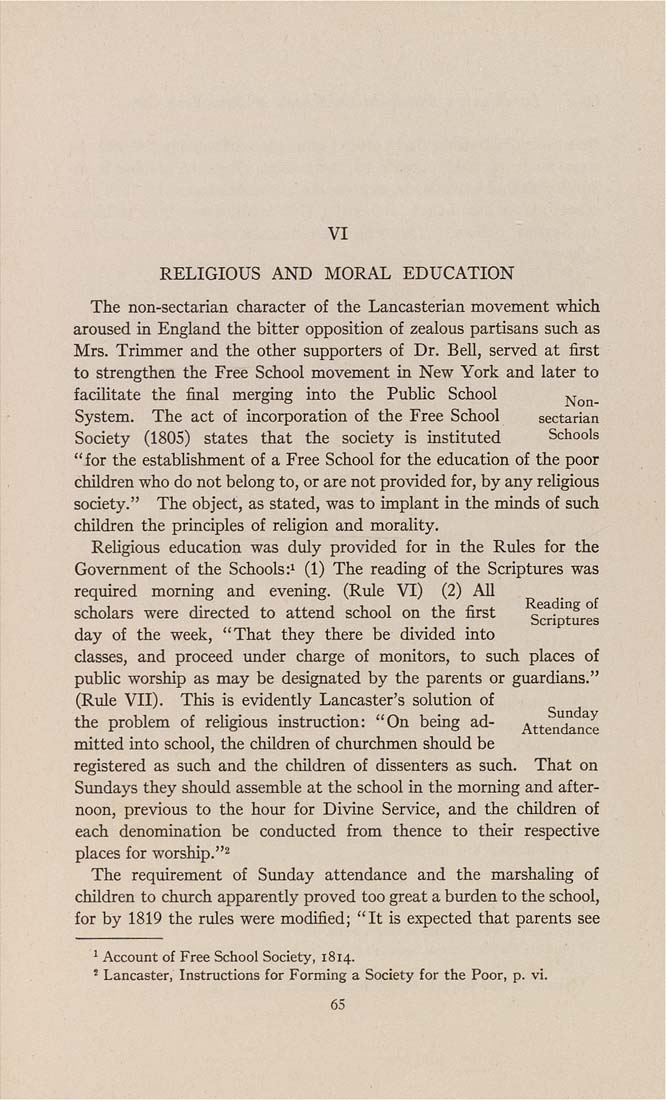VI
RELIGIOUS AND MORAL EDUCATION
The non-sectarian character of the Lancasterian movement which
aroused in England the bitter opposition of zealous partisans such as
Mrs. Trimmer and the other supporters of Dr. Bell, served at first
to strengthen the Free School movement in New York and later to
facilitate the final merging into the Pubhc School jj^^^^
System. The act of incorporation of the Free School sectarian
Society (1805) states that the society is mstituted Schools
"for the estabhshment of a Free School for the education of the poor
children who do not belong to, or are not provided for, by any reUgious
society." The object, as stated, was to implant in the minds of such
children the principles of religion and morahty.
Religious education was duly provided for in the Rules for the
Government of the Schools:' (1) The reading of the Scriptures was
required morning and evening. (Rule VI) (2) All
scholars were directed to attend school on the first s^c^iotures
day of the week, "That they there be divided into
classes, and proceed imder charge of monitors, to such places of
pubhc worship as may be designated by the parents or guardians."
(Rtile VII). This is evidently Lancaster's solution of
the problem of religious instruction: "On being ad- Atten'ckn%
mitted into school, the children of churchmen should be
registered as such and the children of dissenters as such. That on
Sundays they should assemble at the school in the morning and after¬
noon, previous to the hour for Divine Service, and the children of
each denomination be conducted from thence to their respective
places for worship."^
The requirement of Sunday attendance and the marshaling of
children to church apparently proved too great a burden to the school,
for by 1819 the rules were modified; "It is expected that parents see
' Account of Free School Society, 1814.
' Lancaster, Instructions for Forming a Society for the Poor, p. vi.
|








